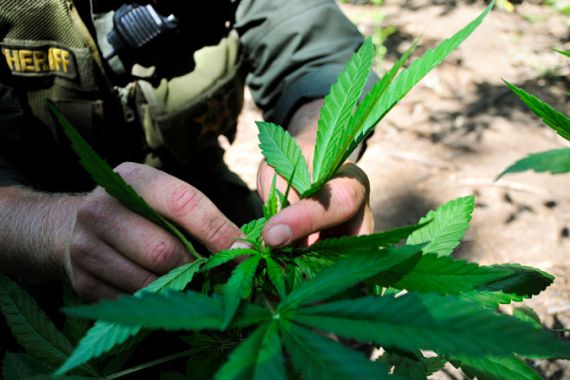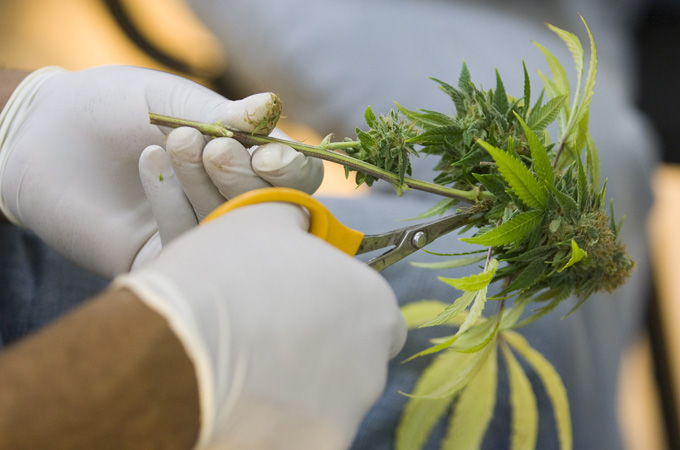Anger over US marijuana vote
Latin American leaders criticise as “confusing” a planned California ballot on legalising cannabis use.

 |
| The California measure, known as Proposition 19, would legalise recreational cannabis use [File: EPA] |
The leaders of several Latin American nations at the forefront of the battle against drug production and trafficking have criticised a planned vote on the legalisation of marijuana in the US state of California.
The November 2 ballot was one of the main topics as Juan Manuel Santos, the Colombian president, hosted the leaders of Mexico, Honduras, Guatemala and Costa Rica on Tuesday.
“It is confusing for our people to see that while we lost lives and we invest vast resources in the drug war, in the consumerist countries they promote proposals like the California referendum to legalise the production, the sale and the consumption of marijuana,” Santos said.
“I ask myself if the eighth economy of the world, that promotes successfully around the world its technology, its films and its good wine, is going to allow then the export of marijuana to its attractive market?”
Santos said that if Californians approve the so-called Proposition 19, then efforts that have been undertaken with Washington’s support to tackle the drugs trade would have to be reviewed.
Legalising marijuana
The measure would legalise recreational marijuana use and allow adults 21 and older to possess up to an ounce of marijuana.
Residents could cultivate marijuana gardens up to 2.3 square metres on private property. City and county governments would decide whether to allow and tax sales of the drug.
Mexico has been battered by drug-related violence in recent years, with more than 25,000 people killed since Felipe Calderon, the president, launched a crackdown on the cartels that control the trade.
On Tuesday, he did not directly mention Proposition 19 but complained about the effect of the drug-trafficking gangs were having on his country.
“Our biggest wish for our region is development but our biggest obstacle is this transnational organised crime, which knows no borders, poisons our youth and damages our people through extortion, kidnapping and murderous violence,” Calderon said.
Previously, Calderon has described the measure as emphasising a “terrible inconsistency” in US drug policy.
“They have exerted pressure and demanded for decades that Mexico and other countries control, reduce and fight drug trafficking, and there is no discernible effort to reduce the consumption of drugs in the United States,” he told The Associated Press news agency.
Legislative conflict
Officials in the administration of Barack Obama, the US president, have said the federal government will continue to pursue its anti-drug policies and is looking at options for responding to the measure, which would conflict with federal laws classifying marijuana as an illegal drug.
PJ Crowley, the state department spokesman, told reporters on Tuesday that US officials “understand it’s an issue of concern”.
“We understand obviously that what is being proposed for California may be in conflict with federal statute, and we’ll work through those issues depending on what happens next week.”
Santos discussed the California vote during a meeting with James Steinberg, the US deputy secretary of state, on Monday and he confirmed Washington’s opposition to legalising marijuana and pledged to keep up co-operation with Colombia.
Recent polls have shown support for Proposition 19 sagging among voters. A survey by the Public Policy Institute of California found that the proposition was backed by 44 per cent of likely voters while almost half said they would vote against it.